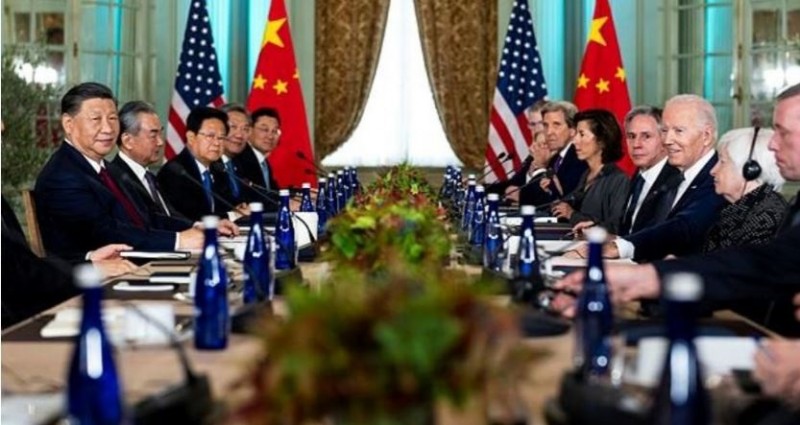
In a big step towards easing tensions, U.S. National Security Adviser Jake Sullivan recently concluded extensive talks with General Zhang Youxia, a top military official under Chinese President Xi Jinping. The discussions, which took place over three days in Beijing, aimed at enhancing military communication between the two global powers.
During the meeting, Sullivan emphasized the importance of establishing robust military-to-military communication channels. General Zhang, who is the vice chairman of China's Central Military Commission, acknowledged the U.S. government's focus on military security and the relationship between the two nations' armed forces.
This marked the first interaction between Zhang and a senior official from the Biden administration, and the first such engagement with a vice chair of the commission since 2018. Sullivan described the meeting as rare and crucial, highlighting the shared responsibility of both countries to manage their competition without escalating into conflict.
Both officials discussed progress in military communication, including plans for theater-level commanders to engage in discussions soon. The U.S. has been advocating for these communications amidst growing regional deployments.
Sullivan also underscored the need for stability in the Taiwan Strait and the importance of maintaining freedom of navigation in the South China Sea, a key maritime route for global trade. Additionally, concerns about China’s support for Russia's defense sector were raised during the talks.
General Zhang, known to be close to President Xi and influential within China's military hierarchy, plays a significant role in shaping China's defense strategies. His meeting with Sullivan is seen as a critical move to stabilize U.S.-China relations, especially as the U.S. presidential election approaches in November.
Sullivan also held in-depth discussions with China's top diplomat, Wang Yi, covering a broad agenda that included potential future talks between U.S. President Joe Biden and President Xi Jinping. The talks also touched on various global issues such as the Middle East, Ukraine, and territorial disputes in the South China Sea.
As President Biden continues to advocate for direct diplomacy in managing U.S.-China relations, it is expected that his administration will maintain this approach in the coming months. Meanwhile, differing views within the U.S. political landscape highlight the ongoing debate over the best strategy to address China's assertive foreign policy.
In addition to military and diplomatic issues, the U.S. also urged China to take more action to curb the production of chemicals used in fentanyl, a major cause of drug overdoses in the U.S. Furthermore, both sides discussed safety standards for artificial intelligence and trade disputes, including U.S. tariffs on Chinese goods and export controls on Chinese technology.
What If China and the US Go Nuclear Over Taiwan? New Analysis Reveals Alarming Risks
Taiwan Flexes Missile Power with Live-Fire Demonstrations Amid Rising Tensions with China
Taiwan Detects Increased Chinese Military Activity, 11 Aircraft Cross Median Line